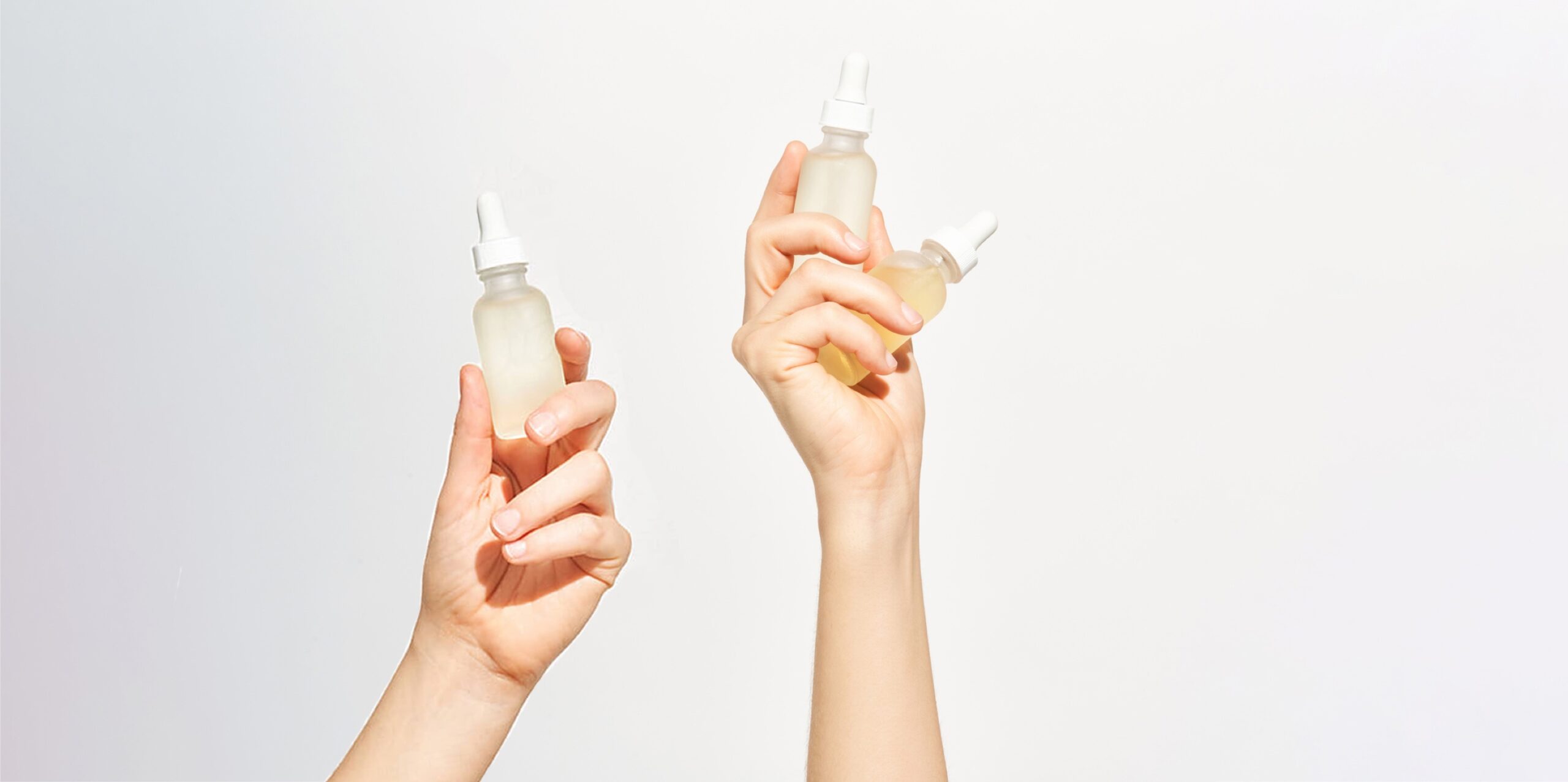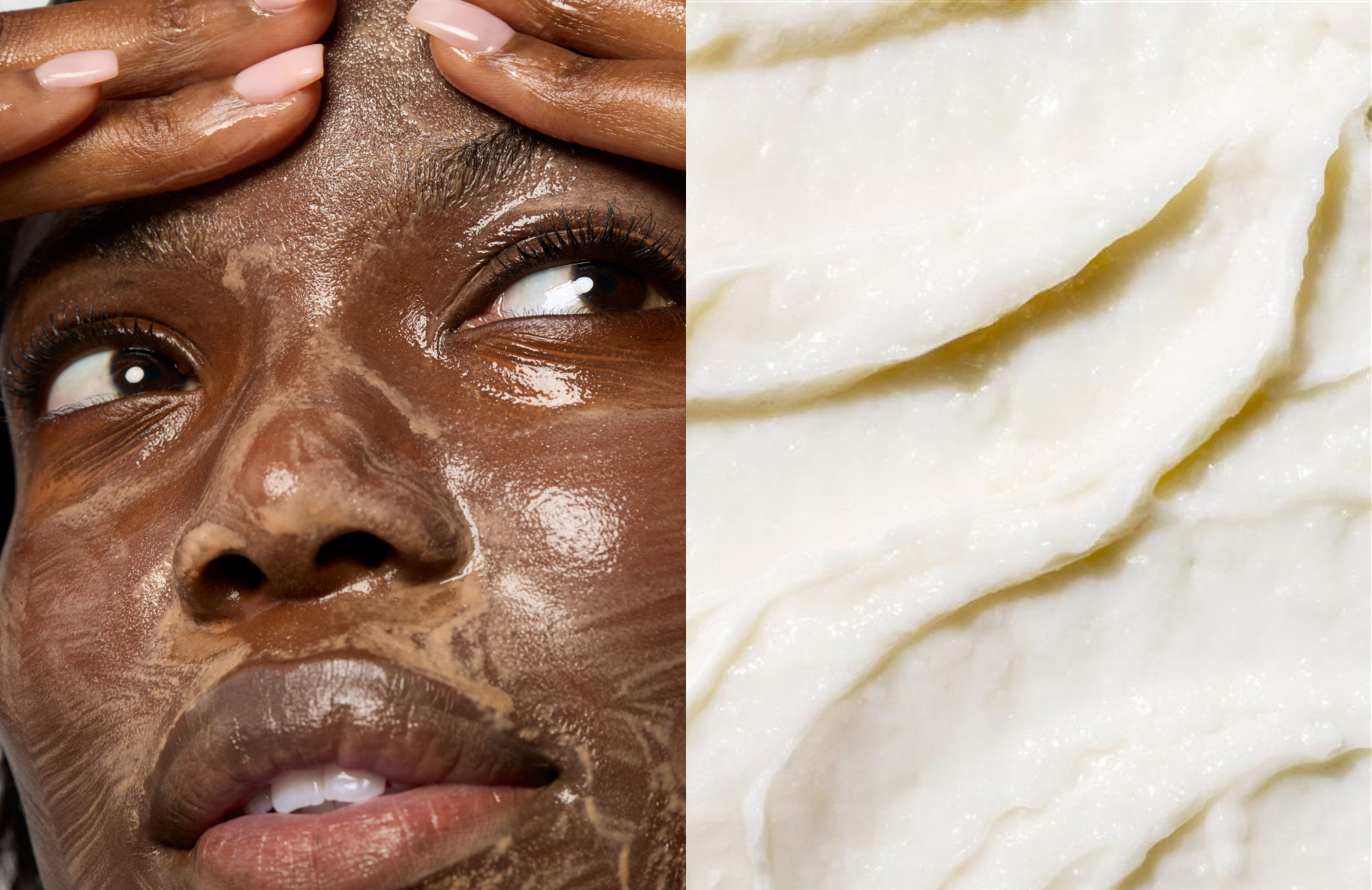The latest skincare ingredient debate: Can you use vitamin C with retinol? Or both?


Clinically reviewed by: Allison Marks, holistic esthetician
Smooth. Youthful. Firm. Healthy. All words we want to hear about our skin. Two of the hottest skincare ingredients out there right now—vitamin C and retinol—can help us get to this skin nirvana. But you might be asking: Can you use vitamin C with retinol? Which one is right for me? But you might be asking: Which one is right for me? Read on for a quick 101 on how to decide, based on insights from our founder, Dr. Howard Murad, treating more than 50,000 patients during his time as a renowned, board-certified dermatologist.
The benefits of vitamin C
Besides being great for common colds, opting for skincare with vitamin C also contains a multitude of benefits for the skin. Its complexion benefits can include:
- Preventing visible skin damage like hyperpigmentation, dullness and uneven tone
- Diminishing the appearance of fine lines and wrinkles
- Shields skin against environmental stressors, like free radical damage
The benefits of retinol
Retinol has earned a reputation as the ultimate wrinkle fighter over recent years. It’s a form of vitamin A that can help:
- Reduce the appearance of wrinkles, dark spots and signs of aging
- Speed cell turnover to shed dead or damaged skin cells and replace them with new, healthy cells
- Enhance skin brightness and even skin tone
- Smooth texture
For those looking for an even more potent vitamin A derivative, tretinoin, also known as retinoic acid, might be an option to consider. Often prescribed by dermatologists for its powerful anti-aging and acne-fighting properties, tretinoin can offer accelerated benefits for those with specific skin concerns.
Retinol vs vitamin C: Which should I use?
Like so many other questions in life, the answer is: It depends. The choice should come down to what you’re looking to do for your skin. When comparing retinol vs vitamin C, it’s important to understand that, while vitamin C is most notable for helping to brighten and improve hyperpigmentation, retinol is typically considered best-in-class for wrinkles and fine lines. However, the good news is that you don’t have to choose—you can use vitamin C with retinol for comprehensive skin benefits.
Incorporating both vitamin C and retinol into your routine
To fully benefit from vitamin C and retinol, adding both to your skincare routine can greatly improve your skin’s health and appearance. So can you use vitamin C with retinol safely? Yes! These ingredients work well together, enhancing each other’s effects for a more comprehensive skincare approach. Here’s a straightforward guide on how to safely and effectively incorporate both into your skincare regimen:
Start slowly
- Begin with low frequency: Start using each ingredient 1-2 times per week
- Increase gradually: As your skin adapts, you can slowly increase the frequency to avoid irritation
Time of day matters
- Vitamin C in the morning: Apply vitamin C in the morning to utilize its antioxidant properties for day-long protection and brightness
- Retinol at night: Incorporate retinol in your nighttime routine to enhance skin’s natural repair during sleep and reduce potential sun sensitivity
Always use sun protection
- Apply broad-spectrum SPF: Ensure you apply a broad-spectrum sunscreen every morning, even on cloudy days and in winter
- Retinol sensitivity: Due to increased sun sensitivity from retinol, diligent sun protection is essential to prevent sun damage
Considerations for sensitive skin
- Patch test first: Before fully incorporating vitamin C and retinol into your routine, perform a patch test to check for skin irritation
- Start even slower: If you have sensitive skin, consider using each ingredient once per week and observe how your skin reacts before increasing frequency
- Seek milder formulation: Opt for sensitive skincare products, which may contain lower concentrations of active ingredients
- Monitor skin response: Pay close attention to your skin’s response. Discontinue use and consult a dermatologist if you experience prolonged redness, burning, or irritation
Choosing the right vitamin C and retinol products for your skin
Selecting the right skincare products is crucial for maximizing benefits when using vitamin C and retinol together and addressing specific skin concerns:
- Vitamin C serum: A vitamin C product targets hyperpigmentation and evens out uneven skin tone, making it ideal for those looking to brighten their complexion
- Vitamin C-infused oil: Provides deep hydration and the brightening benefits of Vitamin C, making it a perfect moisturizer for those with dry skin
- Vitamin C cream: Improves skin texture and firmness, providing antioxidant protection.
- Retinol night cream: An essential retinol product that works overnight to reduce fine lines and wrinkles, improving skin texture and rejuvenating dead skin cells
- Retinal overnight cream: For those seeking an even more advanced vitamin A derivative, retinal (retinaldehyde) converts to retinoic acid faster than traditional retinol, potentially delivering results more quickly while remaining gentle on skin. An overnight retinal treatment can help reduce visible signs of aging while you sleep
- Retinol eye serum: Specifically formulated for the delicate eye area, a retinol serum targets crow’s feet and under-eye bags, making it an excellent choice for those needing focused care
Navigating the world of skincare ingredients like vitamin C and retinol can indeed seem overwhelming, but understanding how to use these powerful active ingredients—and knowing that you can use vitamin C with retinol—can transform your skincare routine into an effective regimen for the ultimate skin health. Whether you decide to use vitamin C, retinol, or a combination of both, the secret lies in tailoring your regimen to suit your unique skin type and needs. By customizing your routine with the right products, you can effectively address various concerns and work towards your goals of healthy, glowing skin. Let your skin show you the remarkable benefits of a perfectly tailored, expert-approved skincare regimen.
FAQs
Q: Can you use vitamin C with retinol at the same time?
A: Yes, you can use vitamin C with retinol, but timing matters. The most effective approach is to use vitamin C in the morning to take advantage of its antioxidant protection throughout the day, and apply retinol at night when your skin naturally repairs itself. This separation also minimizes potential irritation for those with sensitive skin.
Q: Should I use vitamin C or retinol first?
A: If using vitamin C and retinol at different times of day (recommended), apply vitamin C in the morning and retinol at night. If you must use them at the same time, apply vitamin C first, let it absorb completely, then follow with retinol. However, separating them by time of day is generally more effective and less irritating.
Q: Can beginners use vitamin C and retinol together?
A: Yes, but start slowly. Begin by using each ingredient 1-2 times per week and gradually increase frequency as your skin builds tolerance. Apply vitamin C in the morning and retinol at night. Always use sunscreen during the day, as retinol increases sun sensitivity.
The views expressed in this article do not necessarily represent the views of Murad, and are for informational purposes only, even if the advice of physicians and medical practitioners are included. This article is not a substitute for professional medical advice, diagnosis or treatment, and should not be considered specific medical advice.
References for this information:
Nutrients, 2017, volume 9, issue 8, page 866
Nutrients, 2022, volume 14, issue 14, page 2952
Clinical Interventions in Aging, 2006, volume 1, issue 4, pages 327-248


